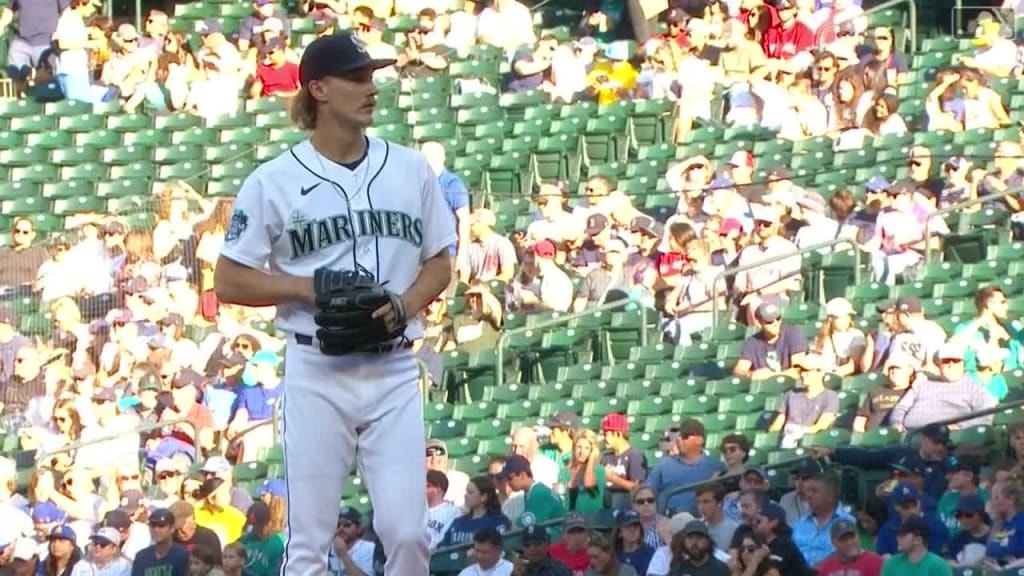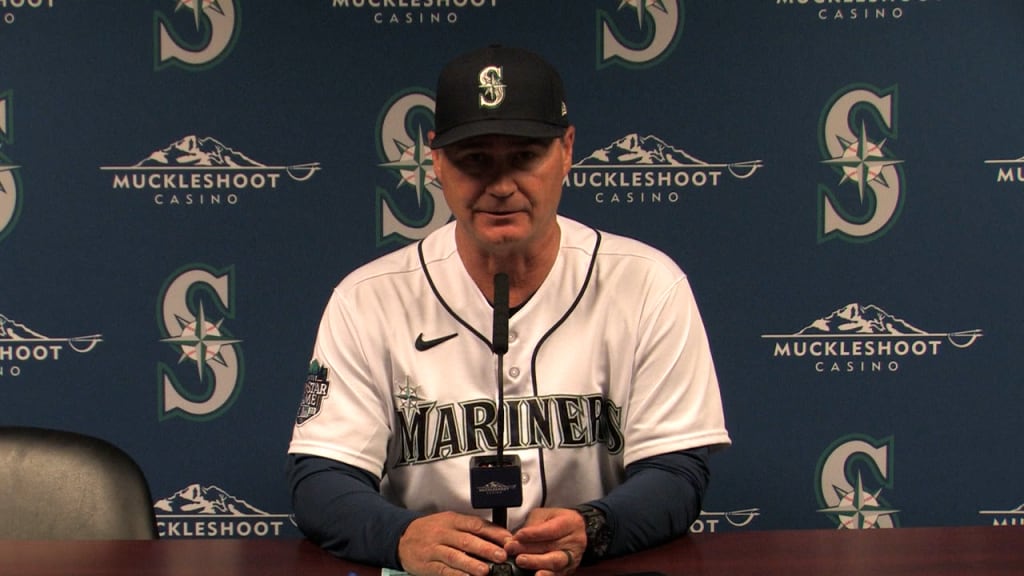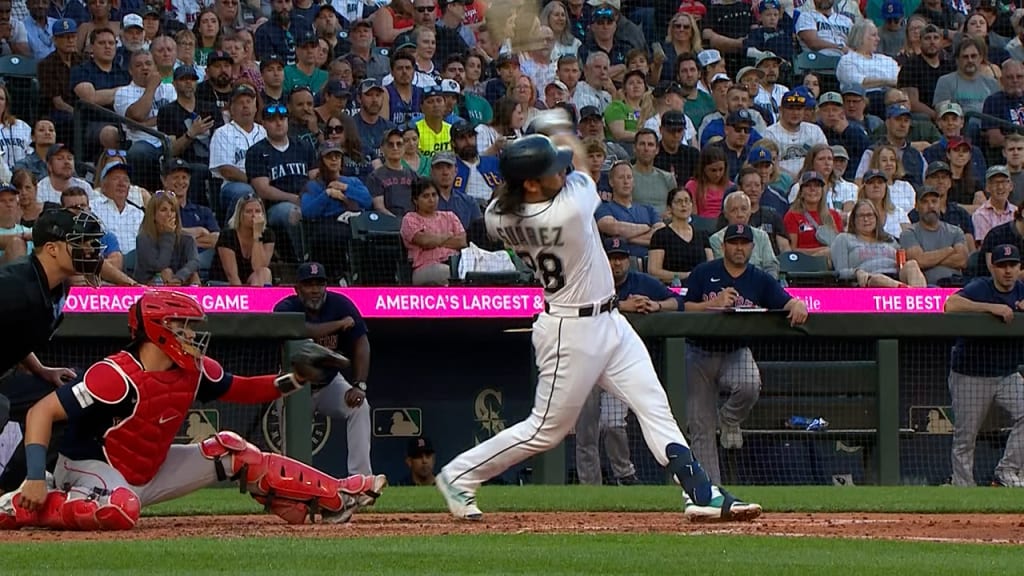Miller seeks length, more velocity after another tough outing
This browser does not support the video element.
SEATTLE -- In the midst of Jerry Dipoto explaining the calculus behind the Mariners’ moves -- or lack thereof -- leading into Tuesday’s Trade Deadline, Seattle’s president of baseball operations was asked if other clubs had reached out on their young starters Bryce Miller and Bryan Woo.
Some had, but the bids weren’t nearly as aggressive as last offseason -- in large part, because the Mariners made it clear that they covet them greatly and see them as key contributors in the second half and beyond.
This browser does not support the video element.
Then, Dipoto was asked how the club intends to manage the innings of each rookie given that the calendar flipped to August, and with it will come more closely monitored workloads. Miller has a far longer leash after reaching 133 2/3 innings last season across three Minor League tiers, but in the wake of consecutive starts with six earned runs, might those plans become clearer soon?
“We have an idea on how we're going to finesse it,” Dipoto said. “And we'll pull the curtain back on that one in a couple of weeks.”
This browser does not support the video element.
In Tuesday’s 6-4 loss to the Red Sox, Miller was hit hard, experienced a few command hiccups, showed diminished velocity at times and walked off the mound for good after giving up his second homer, one out shy of clearing the sixth inning.
“I've got to be better at the end of games,” Miller said. “I've felt really good early in games, just got to finish.”
This browser does not support the video element.
Under super steamy conditions last Wednesday in Minnesota, Seattle’s bats bailed Miller out after he gave up four homers. The two blasts he allowed on Tuesday against Boston -- a two-run homer to Alex Verdugo in the fifth and a solo shot to Reese McGuire in the sixth -- proved costly. He’s given up six homers in his past two outings compared to four total in his previous six.
A fateful fourth inning was equally costly, when Miller gave up a leadoff double on a high-and-in changeup to Masataka Yoshida, walked Rafael Devers, then hit Adam Duvall to set up Christian Arroyo for a two-run ground-rule double with the bases loaded and one out. McGuire followed with a sacrifice fly against a hanging slider.
Miller establishing his secondary pitches has been an admitted work in progress, but his bread-and-butter fastball showed more vulnerability.
This browser does not support the video element.
In that frame, Miller’s velocity dipped to the 92-94 mph range compared to the 94-96 mph in prior innings. And Miller’s slowest fastball, at 90.8 mph, was the one that Verdugo converted into a Statcast-projected 398-foot homer to right-center. It was also on a 2-0 count.
“That's where the later half of the game, you've really got to double down on trusting the stuff, get ahead, attack the zone,” Miller said. “If it's 0-2 or 1-1 even. Like, when it's 2-0, he's sitting dead-red fastball coming. I've just got to be in better counts. If I'm in better counts, then the fastball plays better and I'm also not throwing a get-me-over, 2-0 fastball. I'm throwing it with conviction.”
This browser does not support the video element.
Miller was able to immediately recapture some heat, reaching 95 mph in the fifth after the homer, but he sat in the low-90s in the sixth, capped with a 93.6 mph offering on McGuire’s homer that ended his outing. For the night, his average velocity was 94.6 mph, in line with his season mark of 94.9 mph. But on the few times that it slipped, Boston capitalized.
Miller’s fastball breakdown (entering Tuesday)
94 mph or lower: .452 BA, 1.161 SLG, 7 HR (+2 on Tuesday)
95 mph or higher: .157 BA, .225 SLG, 1 HR
“We've gone over the numbers on the fastball, like below 94 -- and it's substantial,” Miller said. “The back half of games is when I've gotten in trouble. It's when I've given up the most damage on the fastball, and it's just that's where I have to be ready to go, in the fifth, sixth inning.”
This browser does not support the video element.
The primary reason that Dipoto’s front office didn’t make a splashy trade for a bat was because of the dearth of those available. That, and the club continues to believe that a pitching staff that’s kept them within striking distance of the AL Wild Card race will continue to do so.
Seattle doesn’t just need Miller to eat innings -- it needs him to help win games. He’s been a stabilizing force since taking the rotation spot of Robbie Ray three months ago. But this final stretch will be even more critical.


